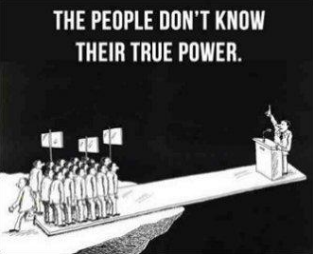Direct democracy (pure democracy) people decide.
Demokrats from the Greek demos and kratos. Demos can “the people” and kratos as “power,” The meaning is “power to people.”
Direct democracy (also known as pure democracy) is a form of democracy in which people decide (e.g. vote on, form consensus on) policy initiatives directly. Direct democracy is true democracy (rule of the people directly with or without representatives), it is the only true form of democracy and should therefore be known simply as democracy. With direct democracy, there is no requirement for representation, although we believe, Members of Parliament should be retained, as day to day someone has to administer society for the good of the people.
The earliest known direct democracy is said to be the Athenian democracy in the 5th century BC. The Athenian democracy was direct not only in the sense that decisions were made by the assembled people, but also in the sense that the people through the assembly and law courts controlled the entire political process and a large proportion of citizens were involved constantly in the public business. Modern democracies do not resemble the Athenian system.

Most western countries have representative systems. Switzerland is a rare example of a country with instruments of direct democracy (at the level of the towns, cantons and federal state). Citizens have more power than in a representative democracy. At the federal level, citizens can propose changes to the constitution (federal popular initiative) or ask for a referendum to be held on any law voted by the parliament. Between January 1995 and June 2005, Swiss citizens voted 31 times, on 103 questions. During the same period, French citizens participated in only two referendums.
Electronic direct democracy (EDD), also known as direct digital democracy (DDD), is a form of direct democracy which utilizes digital communications to facilitate public participation. Electronic direct democracy is sometimes referred to by other names, such as open source governance and collaborative governance. EDD requires electronic voting or some way to register votes on issues electronically. As in any direct democracy, in an EDD, citizens would have the right to vote on legislation, author new legislation, and recall representatives (if any representatives are preserved).
